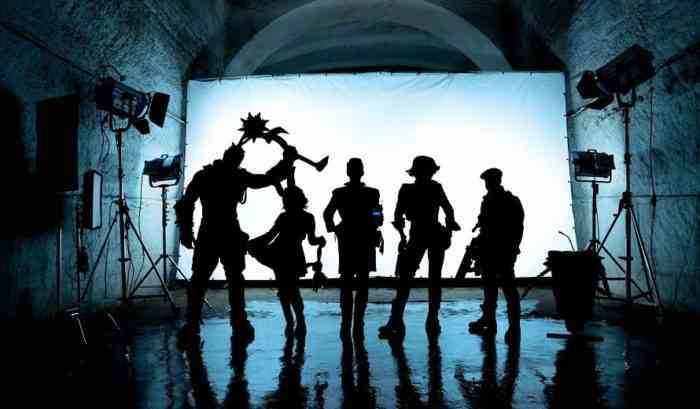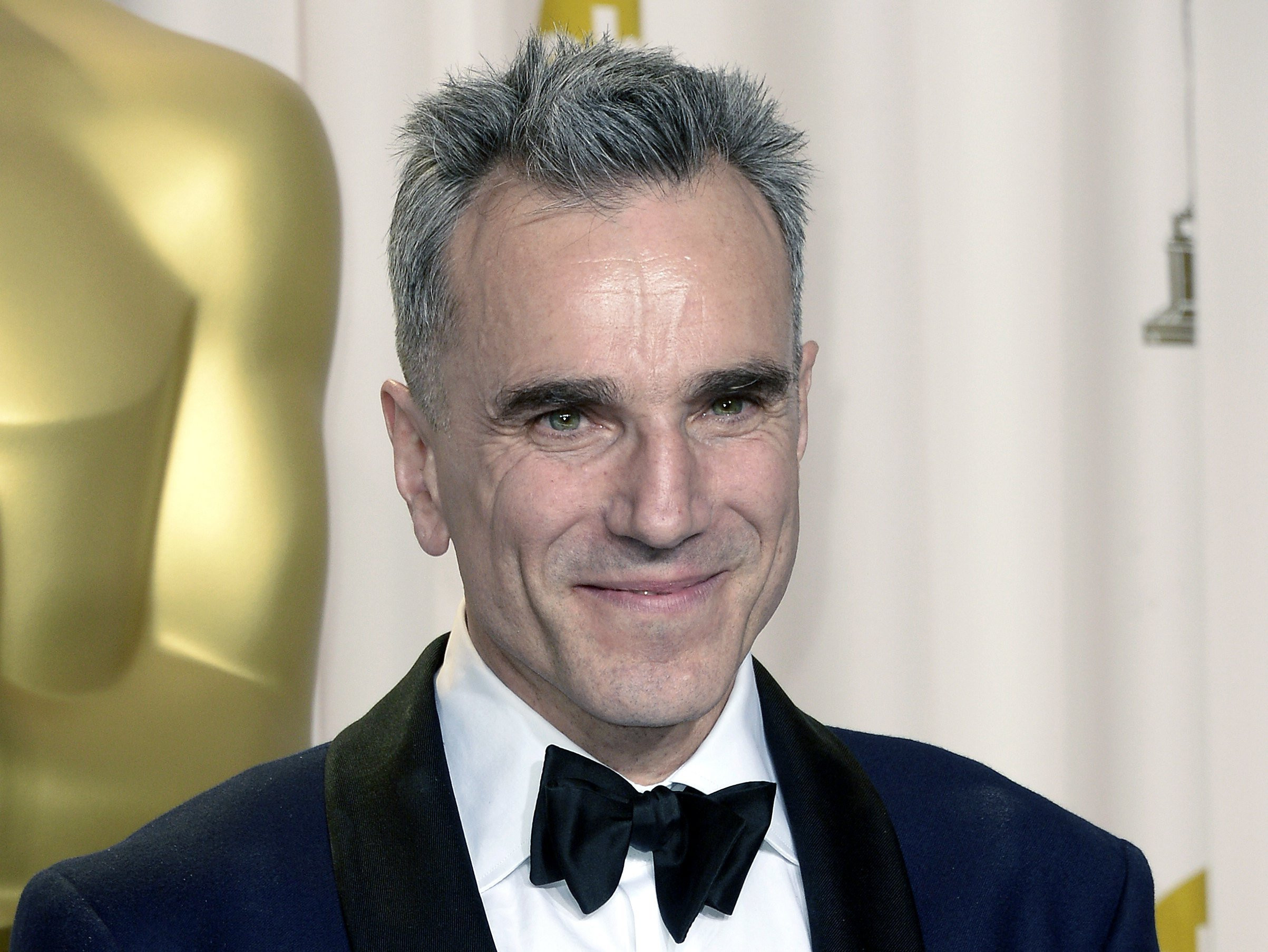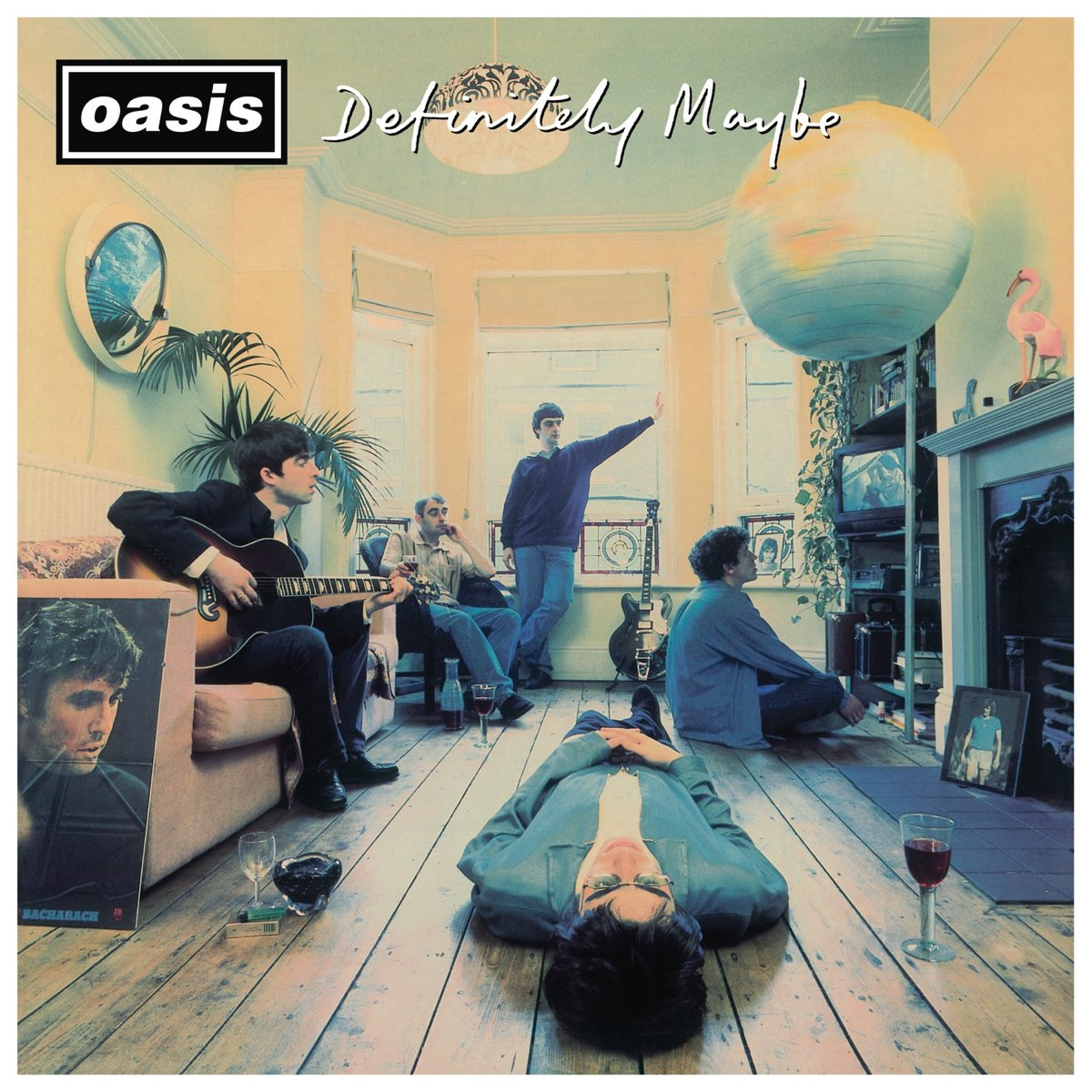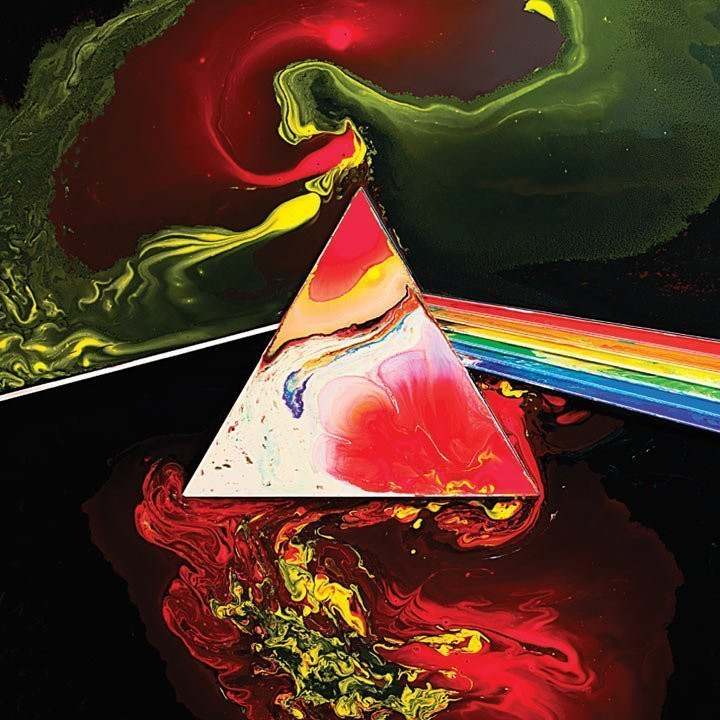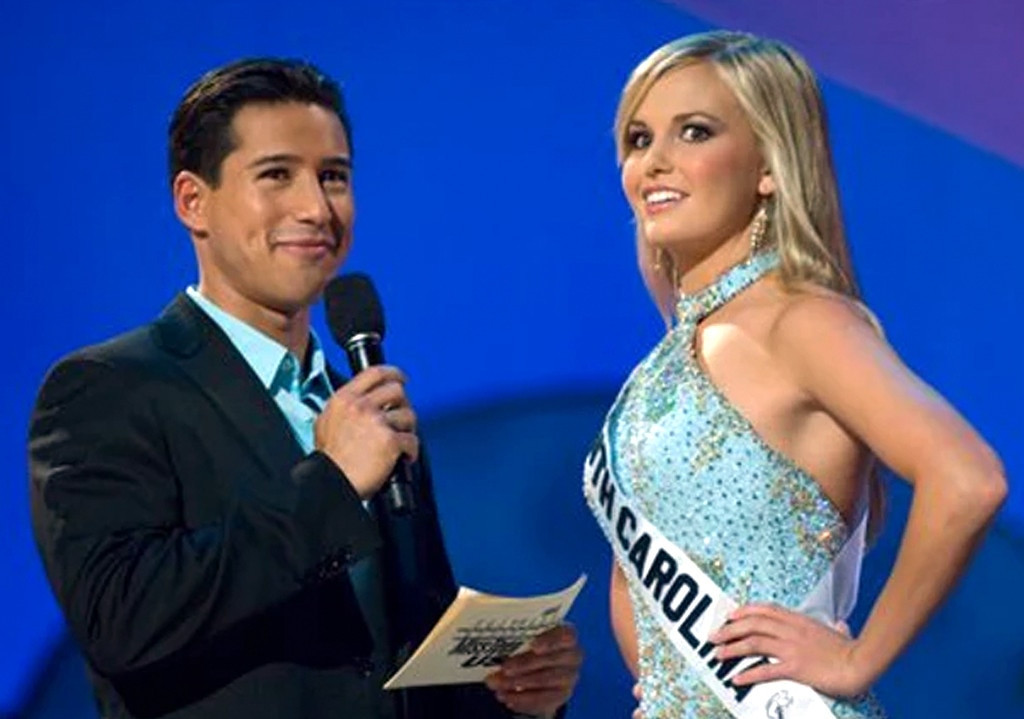Borderlands: A Desolate Wasteland of Missed Opportunities
An hour after leaving a screening of the new Borderlands movie, directed by Eli Roth (Hostel) and starring Cate Blanchett, Kevin Hart, Jamie Lee Curtis, and Ariana Greenblatt, I’m staring at a blinking cursor in a blank Google Doc, urging inspiration to strike.
Surely a live-action movie based on the wildly successful edgelord video game franchise from 2K and Gearbox would inspire a couple hundred words, right? Surely the star-studded cast, which includes several Oscar winners (and Jack Black), would prompt a spark of creativity. Surely the vibrant visuals, cacophonous explosions, and poop and pee jokes would destroy the writer’s block dam, sending forth a surge of witty words and succinct sentences. But I’m at a loss.
Borderlands is not just bad, it’s depressing.
I saw Borderlands at an early screening at Alamo Drafthouse, during which cosplay was encouraged. No one wore costumes, and the theater was solemnly silent, as if we were about to watch archival video of the deadliest WWII battle or found footage from 9/11. R-rated trailers aired before it, prompting me to question if this movie, directed by Roth (known for his gory, gross violence), was rated R (it’s not).
Before I have a chance to double-check the rating, Cate Blanchett’s voice echoes through the theater. “Long ago, our galaxy was ruled by an alien race,” she intones, sounding bizarrely flat for an incredibly talented actor who endeavored to deliver a fun, frenetic performance in another superficial flick: 2017’s Thor: Ragnarok. I’m immediately assaulted by aggressive, slap-dash cuts and shimmery CGI images of guns, neon signs, and Psychos, as Blanchett (who plays Lilith, a character who inspired early-twenties me so much I got one of her quotes tattooed) gives us the plot overview with as much energy as a ‘50s housewife who regularly mixes mood stabilizers and martinis.
Lilith tells us that the Eridians laid the foundation of this galaxy, then disappeared, leaving behind a secret vault hidden on the planet Pandora, inside of which are powerful relics of the long-lost civilization. “That sounds like some wacko B.S., huh?” Blanchett asks. I stifle a groan with a huge bite of my burger. Rather than giving moviegoers the free-wheeling wanderlust that the Borderlands games offer, the film is incredibly linear and straightforward: Lilith, a bounty hunter, is hired by the head of arms manufacturer Atlas Industries to track down his daughter Tiny Tina on the planet Pandora.
We’re introduced to almost all of the main cast rather quickly: Hart as Roland, Greenblatt as Tiny Tina, Florian Munteanu as a Psycho named Kreig. Roland breaks Tiny Tina out of some kind of facility by way of a fairly bland action sequence, during which he punches a guard and calls him a “fake Stormtrooper-ass bitch.” I guess that means Star Wars exists in the Borderlands universe? It doesn’t improve after this.
If you told me Borderlands used AI for its dialogue, I’d believe you without question. Nearly every line that’s uttered with the kind of fake peppiness I’d reserve for my elementary school cheer competitions is either a limp-dicked “edgy” joke that wouldn’t warrant a single Reddit upvote or a cliche phrase like “I’m too old for this shit” and “This has been a really long day.” I could count on one hand the lines that were thoroughly genuine—or at least not dripping with so much snark they were almost sticky. There is no humanity here, just humorless humans.
When a needle-drop of Muse’s “Supermassive Black Hole” bleeds into a scene in which it’s playing over the speakers in a Pandoran bar, I nearly slam my head onto the table. What are we doing here?
Blissfully, Borderlands isn’t that long of a movie, and the breakneck speed at which the film is paced means we meet Jamie Lee Curtis’ Tannis just before I need a pee break (I chugged a beer). Curtis plays her with a socially awkward twitchiness that I didn’t expect from the actor, and while it’s at least an attempt at imbuing the character with a personality, it is incredibly grating. But again, she tried—Blanchett is phoning it in, Hart has no business playing the straight man, and Greenblatt is doing the best she can with material that’s based on a white character doing a blaccent (which the film, thankfully, avoids). But even she can’t save a line read that requires her to say “badonkadonk” in the year of our lord 2024.
And also, not to be ageist, but why the fuck is everyone so old? Lilith is 22 years old in the original Borderlands game and Tannis is in her thirties—aside from the star power afforded by casting Blanchett and Curtis, the only reason for aging up these characters is so they can play matronly figures to Greenblatt’s Tina.
And therein lies the main problem: centering Tina. The plot revolves around her believing she is the child of Eridia and the key to opening the vault, and the film hinges all of the emotional weight on a character who wears a bunny-ear headband and throws explosive teddy bears at people while spewing one-liners like a sugar-crazed 11-year-old in a Fortnite lobby. She does not inspire any sort of empathy, even with Greenblatt’s valiant efforts and Blanchett’s only real acting taking place in their scenes together. It’s like making a Gears of War movie with a Carmine brother at the center—it’s going to be annoying from the jump.
All of this takes place in a weird CGI world that occasionally looks decent but is more often an illegible green-screen mess of explosions or muddy, dark, murky nonsense. Lilith’s flame-orange hair and comic book costume set against a dusty, bland landscape and broken-down industrial buildings is visually and tonally jarring—it’s like the filmmakers got halfway to making a movie inspired by the cel-shaded world of Borderlands and then dumped it all onto the sets used for the Halo series. Speaking of costumes, I’d love to know what the budget was for push-up bras. Tannis, Mad Moxxi, and Lilith all have their breasts pushed up so high they’re nearly in their throats—it is so desperately 2006, so reminiscent of the Victoria’s Secret Fashion Show, that I couldn’t help but giggle. Boobs, am I right?
By the time the film ends and Jack Black’s Claptrap pops up on screen during the credits to lament the loss of his Easter egg, I am ready to go home and cleanse my palate. I need some proper aughts trashiness, some expensive needle drops, and some questionable costumes. I get home, plop down on the couch, and turn on Gossip Girl. At least this has personality.
The Borderlands movie isn’t so good it’s surprising, and it’s not so bad it’s worth a hate-watch. It is simply sad. It feels like the result of a bunch of suits who sat around a glossy mahogany table (like in that one Key and Peele sketch) and reminisced about the early aughts, a time before the financial crisis, a time when the term “cancel” was reserved only for television shows, a time when Muse was one of the biggest rock bands on the planet.
It is devoid of humanity and personality, despite trying very, very hard to establish that it is quirky. It is the woman with frozen peas on her head in the grocery store aisle—she’s so crazzzzzyy, love her! It should not exist.
Borderlands Review: A Generic and Disposable Adaptation
The long-gestating adaptation of Borderlands is a pretty unpleasant experience.
We're in a new era, one in which video game adaptations are seen as just as likely to be good as any other nerdy thing. Whereas many of us used to assume a video game movie would undoubtedly suck, at this point there have been enough good ones that the conventional wisdom has changed. Despite that general shift, the Borderlands movie feels more like a product of the old era--when most game adaptations were generic, disposable action movies at best, and frequently something worse than that. And "generic" and "disposable" is exactly what Borderlands is.
Borderlands, from Hostel director Eli Roth, is an adaptation of the sprawling game franchise set on Pandora, a hostile, desert planet full of corporations and fortune hunters trying to break into a mythical ancient vault that's allegedly full of all sorts of amazing technology. Enter Lilith (Cate Blanchett, delivering her worst American accent), who's been hired by a man called Atlas (Edgar Ramirez) to find his kidnapped daughter on Pandora. There's a catch, of course--the daughter is Tiny Tina (Arianna Greenblatt), and she's more his creation than his actual daughter, since she was engineered from the blood of ancient aliens for the purpose of opening the vault. And she wasn't kidnapped--the Atlas soldier Roland (Kevin Hart) rescued her from her captivity.
It's not long before Lilith catches up to them and shortly after, they're all attacked by Atlas soldiers. Lilith then has to team up with Roland, Tina, their sympathetic psycho bandit pal, the quirky scientist Tannis (Jamie Lee Curtis), and the comic relief robot Claptrap to survive and find the vault themselves.
Let's talk about Claptrap, who is probably the most iconic character from the games. The video game version of Claptrap was originally voiced by former developer at Gearbox, David Eddings, who was replaced with a soundalike in Borderlands 3. But instead of getting somebody who sounds like Claptrap, the movie has Jack Black voice the part--and it's awful. For a few minutes near the beginning of the movie, I was kinda getting into its vibe, but as soon as Claptrap introduced himself to Lilith, the whole thing felt doomed.
It's hard to say what the fatal flaw is in Black's version of Claptrap--perhaps it's that he is completely unable to match Claptrap's established cadence or tone, and so he plays more like a new, annoying Star Wars droid. But having him there turns the whole movie askew, especially since he gets nearly all the joke attempts.
That's a weird thing to say about a movie that stars Kevin Hart, but somehow it's true. Borderlands is not a movie where Hart will grate with incessant jokes, because he hardly makes any. Hart plays Roland as a dry-witted action hero, and he's pretty good at that when he's allowed to be, but it feels like most of his key scenes are missing. Maybe this is a side effect of the movie's PG-13 rating--the games are rated M and have plenty of blood and swearing, and Borderlands so often feels like watching the basic cable edit of something R-rated. And that smoothed-down feeling contributes to one of the film's other biggest issues.
Borderlands comes in at a very brief 102 minutes in length, which you might be tempted to reflexively celebrate in our current landscape of hella long movies. But there's a reason longer movies are en vogue--more time allows for more depth, and depth is what Borderlands is missing the most. But that's what happens sometimes when a movie spends four years in post-production being repeatedly reworked--over time, everything gets sanded down into nothingness.
It's frustrating to see from a filmmaker like Eli Roth, who often gets to act as an auteur with his horror films, like last year's Thanksgiving. But just as often in recent years, he's making stuff like this. And The House With a Clock in Its Walls. And his remake of Death Wish. In short, anonymous studio jobber work that isn't very good and has no real authorship. Borderlands, likewise, is generic, mid-budget CGI slop that looks like a rather cheap episode of The Mandalorian much of the time. And after years of re-editing and a round of reshoots by a different filmmaker, there's not much filmmaking craft left on display.
And the cast, unfortunately, isn't able to help much. Blanchett is putting in some effort, but her American accent is not great--her occasional narration can be especially obnoxious to listen to because of that. But she's not alone in that, since none of the adult stars make much of an impression in Borderlands. The real star here is Greenblatt as Tiny Tina. Tina fades into the background as the movie goes on, sadly, but when she is the focus, Greenblatt is good enough in the part that she's one of the few aspects of Borderlands worth remembering.
Borderlands: A Loot-Seeking Misfire
The Oscar winner is joined by Kevin Hart, Jamie Lee Curtis and Jack Black in a generic gaming adaptation that deprives audiences of the most valuable ingredient of its source: surprise.
Different as they may be in all other respects, Hollywood studios and die-hard “Borderlands” fans have one thing in common: They’re both in it for the loot.
You see, “Borderlands” is what’s called a “looter shooter,” meaning that players blast their way through exotic worlds (in this case, the heavily guarded and treasure-rich planet of Pandora) hoping to pick up goodies that will make their characters more powerful. Unlike movies, you can play and replay the same game infinite times, and it’s never the same experience — which helps to explain why “Borderlands 2,” which came out in 2011, still has many people hooked all these years later.
Psychologically speaking, it’s the same principle — a variable feedback loop — that keeps little old ladies feeding coins into slot machines, young ones swiping right on Tinder and laboratory mice pushing a button that might produce a reward. But that stimulus-response phenomenon, as identified by B.F. Skinner, doesn’t really translate to cinema, where the only real variable is whether you’ll take any pleasure in passively consuming a property that typically rewards a different part of your brain entirely.
Marketed to look like a cross between “Suicide Squad” and a Zack Snyder movie, director Eli Roth’s tamer-than-expected take on “Borderlands” doesn’t have half the attitude or style its cyberpunk ad campaign might suggest. But here’s the real reason why fans of the game will be disappointed: It’s predictable, therefore nullifying the whole “What’ll it be?” appeal of loot.
For those who don’t know the “Borderlands” franchise, Roth’s pseudo-rowdy sci-fi action comedy will likely still seem familiar, as it sticks close to the motley-posse formula, wherein a gang of argumentative scuzzbuckets blast their way through hordes of bad guys on some far-flung planet. For all practical purposes, this could be a generic “Guardians of the Galaxy” knockoff where the cantankerous ensemble has guns instead of superpowers.
While Lionsgate wants the fans to think it was made for them, in fact “Borderlands” represents the latest stab by loot-seeking Hollywood to lure audiences presumed lost to gaming back into movie theaters. Sometimes it works, as with the surprise success of “Five Nights at Freddy’s” last fall, although that film catered to the faithful with Easter eggs and inside jokes, whereas “Borderlands” goes broad. (The company is even giving it the Imax treatment, although fans of the game’s artful cel-shading aesthetic might have preferred similar-looking animation over live action.)
Stoking the four-quadrant appeal for game publisher 2K’s biggest non-sports franchise starts at the casting level, as Lionsgate enlisted stars you’d never expect to find in a movie like this. Oscar winners Cate Blanchett and Jamie Lee Curtis were controversial picks, but the studio could hardly have gotten two bigger talents to play paprika-haired bounty hunter Lilith and Tank Girl-looking Tannis, respectively. Add to that the prospect of Jack Black voicing the sarcastic droid Claptrap and Kevin Hart playing (a shrimpy version of) redemption-seeking ex-soldier Roland, and we’re a far cry from the janky game adaptations by the likes of Uwe Boll and Paul W.S. Anderson.
In the game, you can take your pick of several of those characters or team up with friends to play in co-op mode, which translates well enough to the misfits-on-a-mission storyline Roth and co-writer Joe Crombie have come up with here. It’s just not an especially compelling mission: Everyone in the “Borderlands” universe wants to get his or her hands on Eridian technology. They call themselves vault hunters, and even though Blanchett’s Lilith keeps insisting that she has no interest in such treasure, they’re all looking for the same thing.
Lilith has convinced herself that she’s on a more noble assignment, having been hired by the CEO of the Atlas Corporation (Edgar Ramírez) to track down his “daughter,” Tiny Tina (Ariana Greenblatt). Lilith isn’t the only one on the case either, since Tina is widely believed to be the “key” to unlocking a vault containing loads of Eridian loot. The spunky teen clearly isn’t related to Atlas (who makes a weak villain), but immediately proves to be more dangerous than she looks. She is not only being chaperoned by Roland and a bare-chested berserker named Krieg (Florian Munteanu), but lobs exploding rabbit dolls and packs the film’s biggest gun.
Blanchett has the thankless task of spelling out much of the clunky Eridian backstory during her opening voice-over, after which she hastily quips, “Yeah, that sounds like some wacko BS, right?” Seems like not even the filmmakers can swallow the movie’s setup. When done right, such biting self-parody can serve to excuse tired storytelling. Alas, “Borderlands” arrives so close on the heels of “Deadpool & Wolverine” that it feels like a belly flop to that film’s cannonball.
Roth tries to sustain that irreverent tone for the rest of the movie (as in a scatological gag when Claptrap takes a moment after being shot up by psychos to dump the bullets he’s ingested), but very little of the humor actually lands. It’s hard to fault the cast, who come across as fully committed to characters with such extreme personalities, even if their outlandish costumes tend to say more than their banter.
The weakest link here is Greenblatt, who played the real girl in the “Barbie” movie. Now as fan-favorite Tina, she comes off looking like the ultimate “Weird Barbie”: Her bleach-rinsed hair matches her plush bunny ears and the fashionable pink Band-Aid taped across her nose. But every time she opens her mouth (especially in the scene where she’s splashed with Thresher waste), instead of hearing Tina, we get a child actor overperforming her lines.
Look to Blanchett for a master class in making even the most ridiculous character sound convincing. Fans already know what to expect from Lilith, whose destiny is meant to serve as a surprise in Roth’s retelling, but she plays the flamboyant vigilante without slipping into camp (the way she did in “Thor: Ragnarok”). Even so, it’s hard to overlook the irony, two years after “Tár,” of seeing the star embody a video game character, considering where that film’s whomp-whomp ending left her (at rock bottom, conducting video game music for a cosplay crowd).
Since gamers no doubt have their favorites from among this crew, the movie tries to give each of the leads a heroic battle against a more powerful adversary — or in Roland’s case, a small army of them. But as the film goes on, it’s increasingly clear where things are headed. By the time “Borderlands” unlocks its vault, not even the characters seem to care what’s inside.




